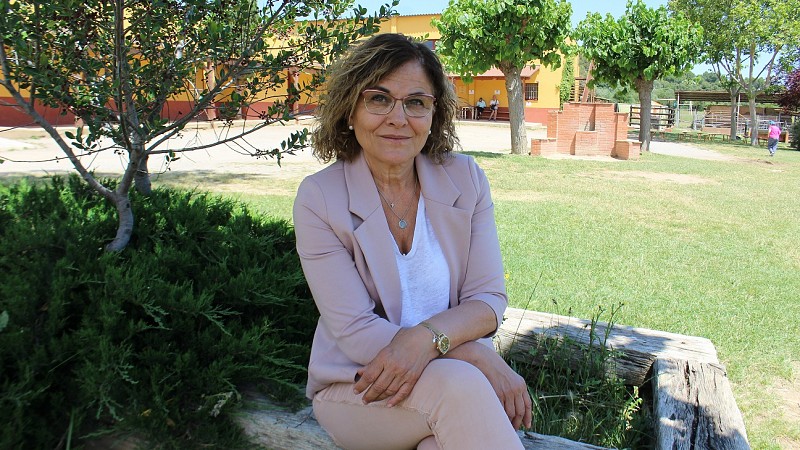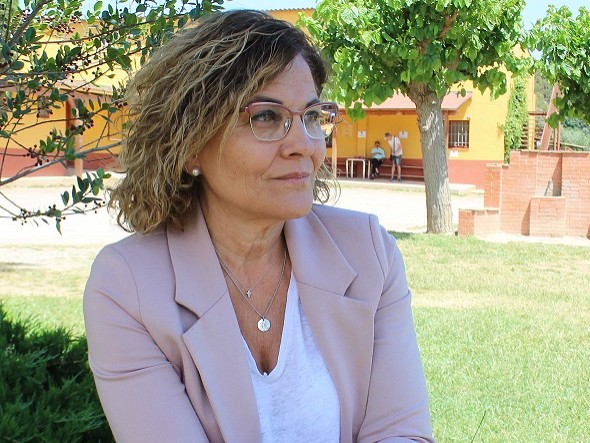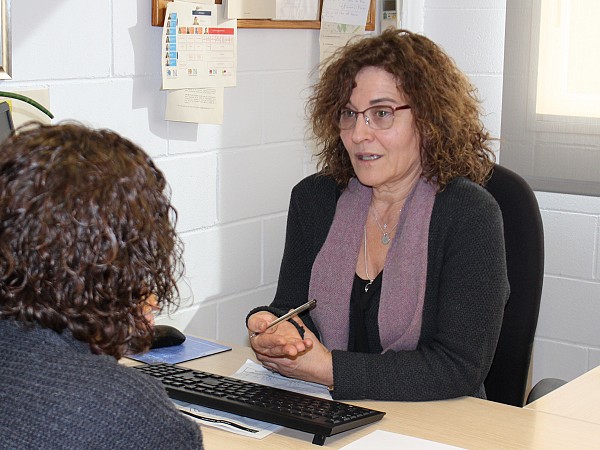We leave you with the interview published in El Punt Today on 07/02/19 by the journalist Carme Vinyoles to the director of the Ramon Noguera Foundation, Pepita Perich. This is the link to the digital medium with the original interview .
PIEDO PERUCO DIRECTOR MANAGER OF THE RAMON NOGUERA FOUNDATION GROUP
"You can not do or have to do business with the attention to people"
It claims that the future act of concerted action will be based on the non-profit organizations of the third social sector because it does not move any other interest to the welfare of its users.
CARME VINYOLES, GIRONA.
At the end of 2018, the Minister of Labor, Social Affairs and Families, Chakir el Homrani, promised to draft a new act of concerted action for the provision of public services for the care of people. What was received between the entities of the third social sector?
Very good, it is a law absolutely necessary to regulate our actions. This government initiative is based on a legislative proposal led by the Confederation - business organization of non-profit organizations - as a representative of the sector as a whole, with the support of the Third Social Sector Table of Catalonia. It is a proposal based on the recommendations of the European directives and the law of state contracts to leave the services of attention to people outside the logic of public procurement.
In the aforementioned proposal, the third social sector is considered to be a strategic ally of the administration and that the concerted action is reserved to non-profit operators. Is it moving in this direction?
I will not deny that a certain concern has been installed at least among the more than 220 entities that work in the field of attention to people with intellectual disabilities. We are concerned that this law of concerted action is linked to the law, also announced, of social economy and we understand that if this is the case, it will be an error, a paradigm shift that will not give the best response to the country's reality.
Can you explain
Yes, and it becomes clear that I value positively the social economy as a type of productive model that the person puts, and not the capital, at the center of his activity. However, within the social economy there can be, very legitimately, a desire for profit, and this aspect substantially differs from the entities of the third social sector that are born of the same society that is organized and is associated to cover a necessity in the own territory, and for which the main mission is to offer the most efficient service for the common good. No profit or business should be taken with the attention of the people, since we are talking about respect for their rights and their inherent dignity. This does not mean that as entities we do not strive to make our projects financially viable and we do not have the capacity for investment and innovation to guarantee the best development and quality of life of our users and also support for families.
Is this the Catalan model? Is it a model of success?
This is a model of success, proximity, comprehensive care and a high level of professional and economic solvency; That's why we call for its continuity and empowerment. A model that was built more than 50 years ago, initiated by civil society, families that mobilized because there was no resource for people with intellectual disabilities at that time. Funding through charity was passed to the recognition of the rights of the people and in accordance with the collaboration with the administration with the subsidy regime and, later, with the contract not subject to free concurrence. We have come a long way that has contributed a lot of experience and added value to society, and it is time for the government to take the lead towards reaching out to non-profit organizations that have demonstrated a vocation for public service and an implicit side of solidarity.
The third sector is very present in the social image of Catalonia.
In 2018 it served 1,584,000 users, it has more than 87,000 workers and mobilizes a volunteer that borders 400,000 people. It's a photo that gives us pride as a country! The reality in Catalonia is that the scope of social services is led by the third social sector, and this has extraordinary potential and richness.
Are there indications that the government could arrange services with profit-making operators?
In the sense I said earlier, to introduce social economy companies as operators. The Confederation maintains the open dialogue and demand that the agreement be reserved exclusively to third sector entities and that the services to people are not commodified. It is a subject of model and future that will be conditioned by the decision that is requested now. There are lobbies that pressurize and try to discredit the third sector, but we want to rely on the political will of the government, which will end up betting on nonprofit entities because they are the guarantee that no other interest moves them that the best attention to the person
In the rest of the state, what options are you taking?
Right now, the communities that have approved a law of concerted action reserved for nonprofit entities are: Aragon, Valencia, the Balearic Islands, Navarra, the Canary Islands and Extremadura.



